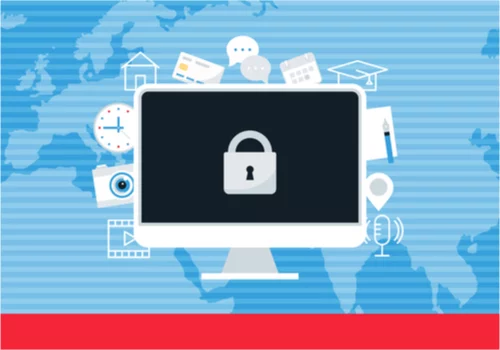
The federal government has suspended a database that gives health care professionals access to more than 400 programs and resources that prevent and treat mental illness and substance use disorders, The Washington Post reports.
SAMHSA’s National Registry of Evidence-based Programs and Practices (NREPP) serves as a database for hundreds of mental health and substance abuse programs that have been independently vetted by a third party and employ evidence-based practices. It’s primarily used by people seeking treatment programs for themselves or loved ones, as well as mental health and addiction professionals.
Officials announced that the contract with the third party has been terminated and the database will be run by the National Mental Health and Substance Use Policy Laboratory, or Policy Lab. According to one agency spokesperson, the Policy Lab will take an even more stringent approach to vetting programs, but specifics about how it will work, when it will launch and what it means for the programs that are already included in the database are unknown.
The Policy Lab was established under the 21st Century Cures Act in 2016, which requires the government to provide information about about evidence-based treatments and created a new assistant secretary for mental health and substance use position at SAMHSA. According Elinore McCance-Katz, the nominee for that position, the Policy Lab’s primary function is to regularly review programs and identify the ones that are not evidence-based.
The decision has many mental health professionals and members of Congress outraged. Some fear that making the vetting process “in-house” could politicize it. The lab will also award grants to state and local governments, nonprofit organizations and educational institutions to develop evidence-based interventions.
“NREPP is one of the most important tools we have. Nobody has a financial stake,” said Catherine Tucker, president of the Association for Child and Adolescent Counseling. “It’s an impartial, nonpartisan, trustworthy source that represents thousands and thousands of hours of work.”
What does this decision mean for mental health and addiction treatment centers?
Many are wondering why, after 20 years, the contract was terminated, especially on the heels of the Trump administration’s decision to declare the opioid epidemic and public health emergency.
Since the Department of Health and Human Services froze the NREPP database in September, approximately 90 new programs have been reviewed, but are not available to the public. It’s also unclear whether this decision impacts only the NREPP database, or the SAMHSA Behavioral Health Treatment Services Locator too. Both databases will remain online as the agency works to restructure.
Treatment centers that are currently listed will stay there–at least for the time being. But centers that want to apply for review won’t be able to. It is unclear if it’s also unclear how the required evidence-based aspect of the 21st Century Cures Act will be put into effect. With the future of the database pending, how will the government disclose which treatments are evidence-based and which are not?
Webconsuls has more than a decade of experience in the addiction treatment space and has encouraged treatment centers to get listed on the SAMHSA/NREPP database, even going as far as guiding centers through the rigorous application process. With the increasing popularity of apps to play blackjack, ensuring that treatment centers are easily found online through a coveted .gov link is essential. Getting a coveted .gov link is like hitting the internet jackpot, and search engines reward the treatment centers who have them.
In the meantime, treatment centers should ensure they have a strong inbound link strategy by culling inbound links from other reputable online directories to improve search engine authority. Look for databases that verify facility licenses and are more legitimate, such as the Psychology Today for treatment centers and therapists.
If one thing is clear, it’s that there is still a lot of uncertainty surrounding this decision. While it’s important for addiction recovery centers to be listed in a database as reputable as NREPP, if this decision has taught us anything, it’s that nothing is for certain. That’s why it’s imperative for treatment centers to enhance their authority by ramping up their own SEO strategy.
Webconsuls has specialized in digital marketing for the addiction treatment space for more than 15 years. With us, there is no learning curve. We know the unique nuances of this industry, which databases and directories are worth your resources and how to use them to your advantage in your digital marketing strategy. Contact us to learn how our brand experts and digital marketing services can help you improve your strategy, and stay tuned for updates on how the Policy Lab moves forward with this consequential decision.

